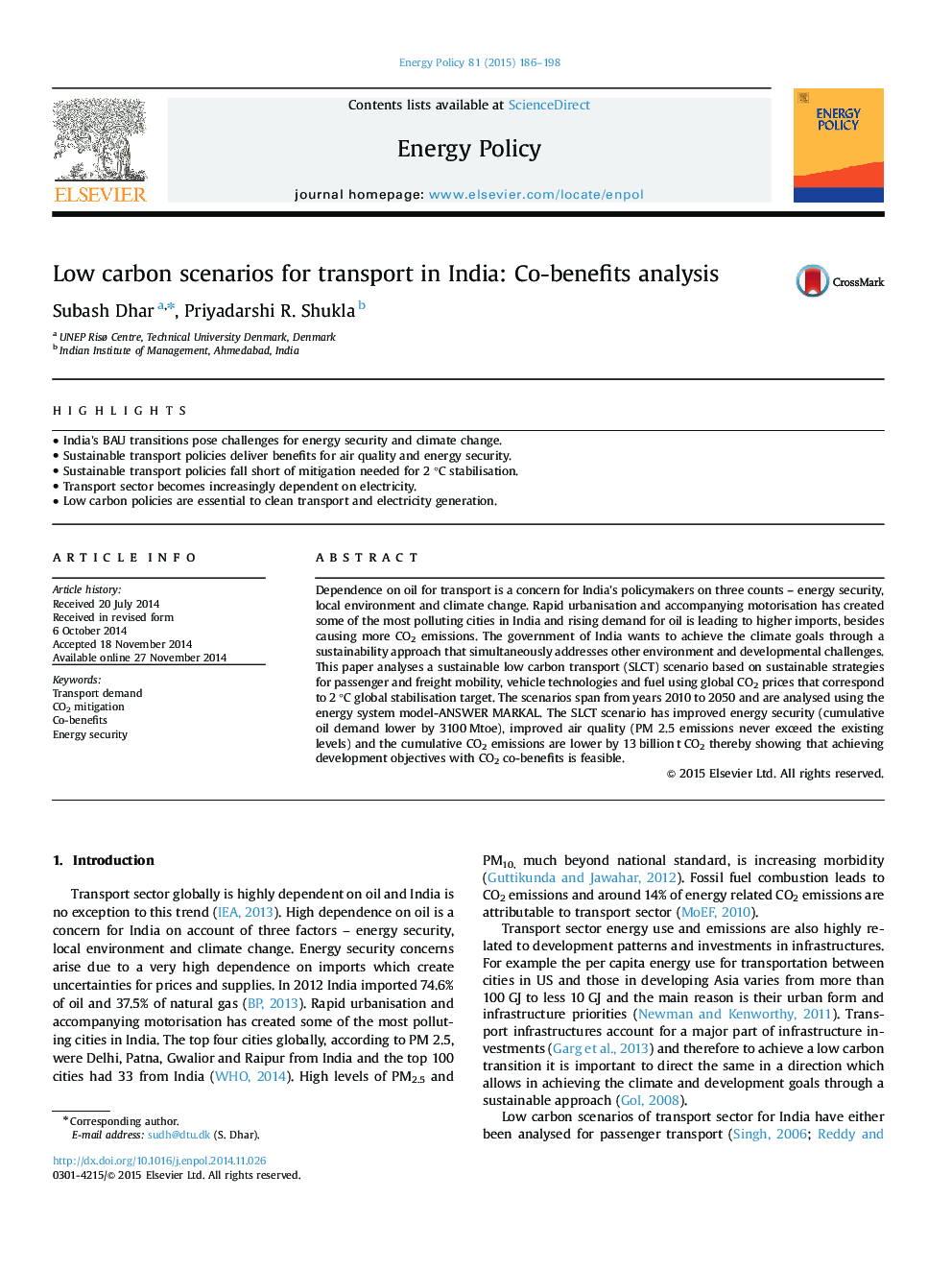| کد مقاله | کد نشریه | سال انتشار | مقاله انگلیسی | نسخه تمام متن |
|---|---|---|---|---|
| 992837 | 1481277 | 2015 | 13 صفحه PDF | دانلود رایگان |
• India's BAU transitions pose challenges for energy security and climate change.
• Sustainable transport policies deliver benefits for air quality and energy security.
• Sustainable transport policies fall short of mitigation needed for 2 °C stabilisation.
• Transport sector becomes increasingly dependent on electricity.
• Low carbon policies are essential to clean transport and electricity generation.
Dependence on oil for transport is a concern for India's policymakers on three counts – energy security, local environment and climate change. Rapid urbanisation and accompanying motorisation has created some of the most polluting cities in India and rising demand for oil is leading to higher imports, besides causing more CO2 emissions. The government of India wants to achieve the climate goals through a sustainability approach that simultaneously addresses other environment and developmental challenges. This paper analyses a sustainable low carbon transport (SLCT) scenario based on sustainable strategies for passenger and freight mobility, vehicle technologies and fuel using global CO2 prices that correspond to 2 °C global stabilisation target. The scenarios span from years 2010 to 2050 and are analysed using the energy system model-ANSWER MARKAL. The SLCT scenario has improved energy security (cumulative oil demand lower by 3100 Mtoe), improved air quality (PM 2.5 emissions never exceed the existing levels) and the cumulative CO2 emissions are lower by 13 billion t CO2 thereby showing that achieving development objectives with CO2 co-benefits is feasible.
Journal: Energy Policy - Volume 81, June 2015, Pages 186–198
